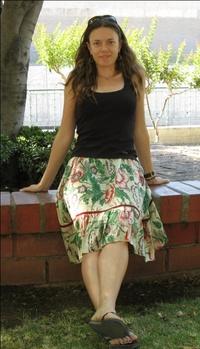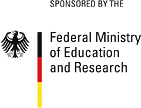Kristin Wintersteen

Duke University
Department of History
PhD Candidate
desiguALdades.net: Visiting Doctoral Researcher (01/06/2011 - 30/11/2011)
27705 Durham, North Carolina, USA
Academic Career
|
06/2011 - 11/2011 |
Doctoral Researcher at desiguALdades.net (Berlin, Germany) |
|
08/2004 - 12/2011 |
Ph.D. in History, Duke University (North Carolina, United States) |
|
09/1997 - 07/2001 |
Bachelor of Arts, Latin American Studies, University of Washington (Seattle, United States) |
|
09/1997 - 07/2001 |
Bachelor of Arts, Spanish, University of Washington (Seattle, United States) |
Teaching Experience
|
01/2010 - 05/2010 |
Instructor, “Environmental History of the Americas,” History Department, Duke University (North Carolina, United States) |
|
01/2010 - 05/2010 |
Instructor, “Introduction to Contemporary Latin America,” History/Center for Latin American and Caribbean Studies, Duke University (North Carolina, United States) |
|
08/2006 - 12/2006 |
Teaching Assistant, “U.S. Business History,” History/Economics, Duke University (North Carolina, United States) |
|
01/2005 - 05/2005 |
Teaching Assistant, “Introduction to Contemporary Latin America,” History/Center for Latin American & Caribbean Studies, Duke University (North Carolina, United States) |
|
01/2003 - 03/2003 |
Grading Assistant, “Modern Latin American History,” History Department, University of Washington (Seattle, United States) |
Protein from the Sea: The Industrialization of Southeast Pacific Fisheries and the Global Rise of Fishmeal (1945-1973)
By the early 1970s, Peru and Chile had become the epicenter of a spectacular fisheries boom. Their success was based on the immense schools of anchovies, sardines, and mackerel that thrived in the nutrient-rich waters of the Humboldt current, flowing northward along the South American Pacific Coast. These emerging fishing nations were among the first recipients of aid from the newly-founded U.N. Food and Agricultural Organization (FAO), where experts believed that fish could solve the formidable problem of world hunger. Yet the growing consumer preference for “white” meat in the global North also compelled industrialists to engineer ever-cheaper chickens and hogs, whose specially formulated feeds depended upon fish meal made overwhelmingly from the small pelagic fishes of the Southeast Pacific. In recent decades aquaculture (fish farming) has also become a principal source of demand for fish meal and its byproduct, fish oil.
Fish meal is thus a key commodity through which to analyze the inequalities surrounding the trade of natural resources in the global marketplace. My work at desiguALdades.net examines how the transformation of fish meal into a lucrative export commodity after World War II eventually sidelined debates over malnutrition in the developing world. This research forms part of my larger dissertation project, which explores the transnational environmental history of industrial fisheries in the Southeast Pacific, as Peru and Chile — the world’s top two fish meal producers — have grappled with ecological limits and powerful interest groups within a shifting international political, socio-economic, and legal landscape since the 1950s.
Book Chapters
Kristin Wintersteen, “Sustainable Gastronomy: The Political Ecology of Southeast Pacific Fisheries in the Global Industrial Food Web,” en D.R. Gallagher & N. Christensen, eds., Environmental Leadership: A Reference Handbook (SAGE, forthcoming 2012).
Journal Articles:
John D. French and Kristin Wintersteen, "Crafting an International Legal Regime for Worker Rights: Assessing the Literature since the 1999 Seattle WTO Protests," International Labor and Working Class History, Vol. 75 (Spring 2009), 145-168.
Presentations
|
2010 |
“Fishing for Fodder: South American Fishmeal Empires and North American Ranching, 1945-1973,” American Historical Association Conference (San Diego, United States) |
|
2008 |
‘Los recursos pesqueros son de todos’: Civic participation and the struggle for environmental sustainability in Chilean fisheries, 1989-2002,” Latin American Society for Environmental History (SOLCHA) Conference (Belo Horizonte, Brazil) |
|
2008 |
“The stench of success: Anchovies, protein politics, and the making of a fishmeal empire in Chile and Peru, 1950-2000,” Tertulia presentation, Center for Latin American and Caribbean Studies, Duke University (North Carolina, United States) |
|
2006 |
“Environmental sustainability and grassroots political organization among Chilean artisanal fishermen,” Southeastern Council of Latin American Studies Conference (North Carolina, United States) |
